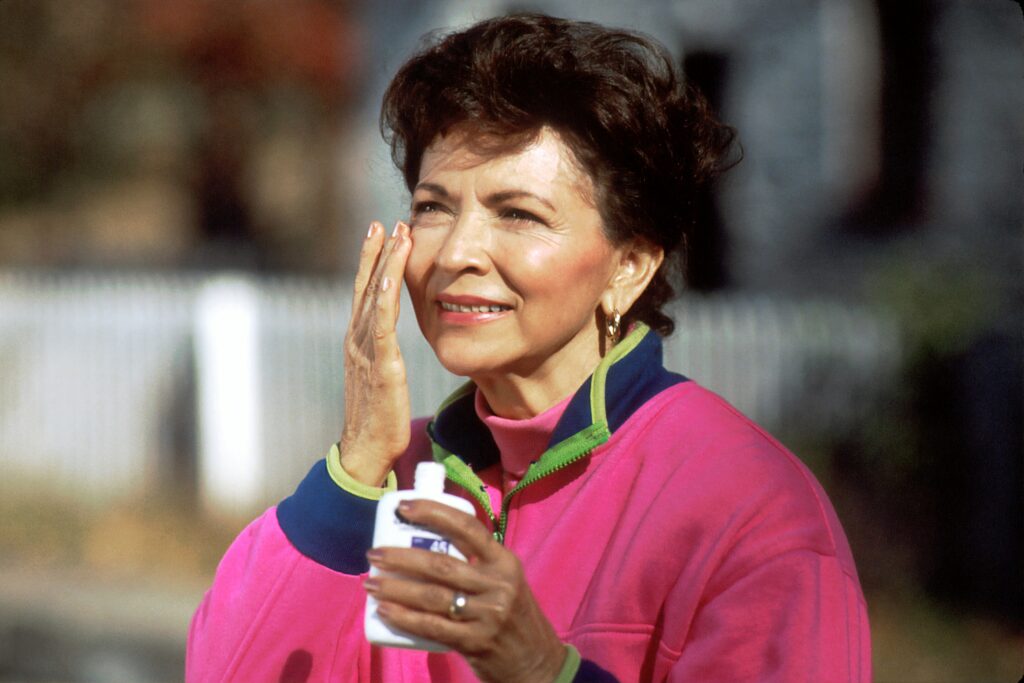7 Summer Safety Tips for Seniors: Staying worry-free at Cornerstone

As summer arrives, longer days and warmer temperatures bring exciting opportunities to enjoy the outdoors. But when it comes to older adults, there are a few safety measures that are helpful to consider. At Cornerstone, our top priority is the health and well-being of our residents, especially during extreme weather. With a little preparation, summer can be both safe and enjoyable.
Here are seven summer safety tips to help seniors stay cool, healthy, and protected throughout the season:
Summer Safety Tips for Seniors
1. Stay Hydrated Throughout the Day
Dehydration is one of the most common risks for older adults during the summer months. As we age, our sense of thirst naturally declines, meaning many seniors may not feel thirsty even when they need fluids. To avoid dehydration, it’s important to drink water regularly throughout the day, not just during meals or after physical activity.
As a senior living community, we can encourage the use of water bottles, offer flavored water or electrolyte beverages, and consider kind reminders throughout the day. As minor as it may seem, staying hydrated actually supports heart health, helps regulate body temperature, and prevents fatigue and dizziness.
2. Dress For the Weather
As much as you hydrate, there are still certain risks of sun exposure. Harmful UV rays can cause skin damage and other serious concerns. Wearing lightweight, breathable fabrics in light colors help the body stay cool while reflecting heat. Wide-brimmed hats, UV-protective sunglasses, and long sleeves or pants made from moisture-wicking material provide even more protection.
Applying a broad-spectrum sunscreen with at least SPF 30 is crucial, even on overcast days. Sunscreen should be applied to all exposed skin, especially the areas that are easy to forget. Reapplication is key after sweating or spending extended time outside.
3. Plan Activities Around the Cooler Hours
The sun’s rays are strongest between 10 a.m. and 4 p.m., and during this time, the risk of heat exhaustion or heat stroke increases noticeably. You can reduce exposure to high temperatures by scheduling outdoor activities like gardening, walking, or social events during the early morning or later in the evening. Not only is it safer, but it also tends to be more comfortable and much cooler.
When outdoor plans are necessary during the peak heat hours, seek out shaded areas or use umbrellas, fans, or cooling towels for added relief.
4. Take Advantage of Shaded Spaces
When the heat just becomes too much, it’s important to know when to move indoors and cool down. Encourage residents to spend time in community lounges, libraries, or wellness centers when temperatures spike. For those who enjoy being outdoors, shaded patios or garden areas with adequate ventilation offer a great solution. Cool showers, damp washcloths, or a short rest in a quiet, temperature-controlled room can quickly bring your body temperature back to a healthy level.
5. Be Aware of Your Medications
Many seniors take medications that can interfere with their body’s ability to regulate temperature or stay hydrated. Diuretics, certain heart medications, and antihistamines, for example, can make individuals more susceptible to heat-related issues. It’s a good idea for residents and their families to consult with healthcare providers or pharmacists to understand how specific medications might interact with hot weather.
6. Recognize the Early Warning Signs of Heat-Related Illness
Knowing the symptoms of heat exhaustion and heat stroke can be lifesaving. Heat exhaustion may include heavy sweating, weakness, dizziness, nausea, and headaches. If left untreated, it can progress to heat stroke, which is a medical emergency that causes confusion, a rapid pulse, dry or hot skin, and even loss of consciousness. If any of these signs appear, you must move to a cooler place immediately, drink fluids, and apply cool compresses. When in doubt, seek medical attention right away. At Cornerstone, our caring staff is trained to respond quickly and appropriately to these situations, ensuring the safety of all our residents.
7. Exercise Safely
Staying active is important for senior health, but it is wise to exercise thoughtfully during the warmer months. Low-impact activities like walking, stretching, or gardening are wonderful ways to maintain mobility and boost your mood. Just be sure to get active during cooler times of day and avoid overexertion.
Take frequent breaks, wear appropriate footwear, and make sure hydration is always a part of your routine. When it’s too hot outside, indoor alternatives such as light yoga or balance classes offer excellent substitutes that keep the body moving without risk.
Prioritizing Wellness
Summer is a season full of joy, sunshine, and the chance to reconnect with nature and loved ones. At Cornerstone, we believe that safety and enjoyment can go hand in hand. By following these practical summer safety tips, seniors can enjoy the benefits of the season while keeping safe and healthy.
Whether it’s planning outdoor activities, reviewing medications, or simply applying our summer safety tips, our staff is here to help every step of the way. We’re committed to creating an environment where every resident feels safe, cared for, and empowered to enjoy life to the fullest.